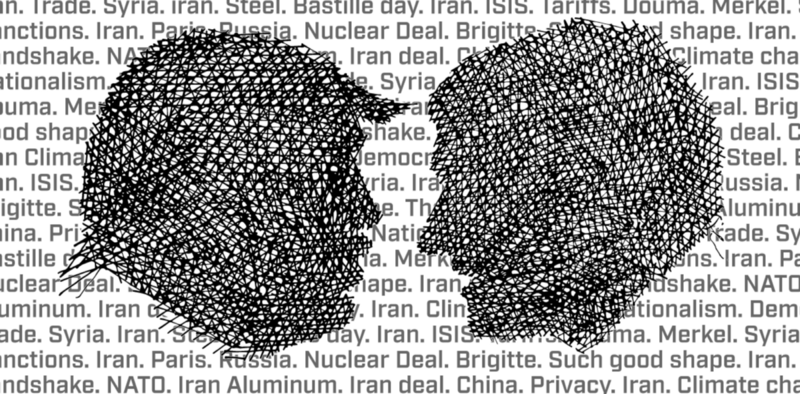French President Emmanuel Macron isn’t exactly Donald Trump’s type, to say the least. Macron is a “globalist” who sees himself fighting for the future of liberal democracy, while Trump is a hero to precisely the illiberal politicians and nationalists Macron detests. Where Macron embraces high culture and history, Trump is a creature of cable TV and the eternal present. Macron married a woman a quarter of a century older than him, Trump’s age gap with Melania runs in the other direction.
Yet in many ways Trump and Macron, who arrived yesterday for the first state visit granted by the Trump White House, are on the same wavelength. They’re both businessmen who rode anti-establishment waves to the presidency. They both hate politics as usual but share a love of pomp and parades. In their affect(ion)s there’s the sense of the mutual admiration you find in the tussle of two alpha dogs.
Will that understanding yield concrete results for either? For Trump, a decent photo-op with the rare friendly European head of state is probably a win — particularly ahead of a brief, and likely chillier, visit from German Chancellor Angela Merkel later this week.
But for Macron, the stakes are higher. His economic reforms have left him unpopular at home. His ambitious vision for a more powerful EU has provoked skepticism across the continent.
Close ties with Trump, who is deeply disliked in much of Europe, are a big gamble, and now he’s got to show that he can convince the US president to do three big things for Europe: keep the US in the Iran deal, leave American troops in Syria to keep ISIS at bay, and grant the EU permanent exemptions from new steel and aluminum tariffs.
If Macron can’t bring home something on at least one of those areas, the man who came to office promising a Jupiterian presidency will look like he’s gotten burnt by the sun. He wouldn’t be the first.
